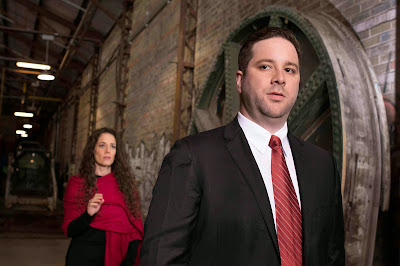The lazy, hazy days of summer continue and seem endless, more hazy than lazy for many, and far worse than anything one could have imagined at this time last year. One feels helpless in the face of so much tragedy – and highly discouraged in continuing any form of creative pursuit.
After hours (days, weeks) spent negotiating with various forms of sadness, I’ve found solace, usually temporary if no less rewarding, in old favorites: reading, listening, watching, and lots of cooking. My deep freeze has never been so consistently full, my head similarly filled with novels, names, images, events, ideas, places, and oddly (or not) a renewed sense of creative inspiration. One has to give thanks for these things, and very often, make time for them, as much as for the good people who have spent time and energy in conversation, often over meals, enduring my meandering conversation and offering their own insights, “You need to move” being unquestionably the best.
Sometimes simple things pull one through challenging times, though of course there’s always the risk of those things clearing the ground for more pondering, furrowing of brows, (over)thinking. Perhaps Prince Orlofsky has the best response here…
Striking summer things for me have been wide-ranging and not always joyous (shock shock) but sometimes, just sometimes, they are that, and validating too. A fascinating study published in July 2023 points up the essentially visceral nature of the live experience. Babies between the ages of six and fourteen months were studied in order to examine the effects of music in live and controlled environments. Three groups (one presented with a live show; one with a playback of the show in the same environment; the last with playback at home) were shown an excerpt from The Music Box (a baby opera by artist Bryna Berezowska) at the McMaster University LIVELab, a research facility/concert hall located in Hamilton, Ontario.
The study found that the babies who experienced the live version were far more engaged, with their heart rates even synchronizing. Study co-author Laura Cirelli, Assistant Professor at the University of Toronto’s department of psychology, noted that “If there’s something happening that we collectively are engaging with, we’re also connecting with each other. It speaks to the shared experience.” Cirelli also noted that the study reinforced ideas related to socialization. “An itsy bitsy audience: Live performance facilitates infants’ attention and heart rate synchronization” was conducted by researchers at the University of Toronto Scarborough, the Department of Settlement & Community Services (Toronto), Université du Québec à Trois-Rivières, and Bucknell University (Lewisburg, Pennsylvania). This study makes me feel a bit less ridiculous about the amount of frustrated arm-waving I did during the first eighteen months or so of the coronavirus pandemic. “Whither will?!” I kept shouting (and writing) at anyone who would listen (read), “Don’t you know the live experience is so very vital to our being human?” It’s nice to see this sense has been confirmed in actual science, although I’m not confident the results will inspire a more intelligent and humane approach to the arts in certain sectors, especially given the precipitous rise of AI technologies.
Technology is only one aspect of the harrowing and thought-provoking article “The Perils and Promises of Penis Enlargement Surgery” by Ava Kofman, a collaboration between The New Yorker and Propublica and published in the former’s July 3, 2023 print edition. Along with admiration for the writer’s professionalism and thoroughness, the work also inspired a contemplation of operas which revolve around body parts – namely Poulenc’s Les Mamelles de Tirésias and Shostakovich’s The Nose, itself is based on the short story by Nikolai Gogol. Quite often these operas are staged for laughs even as some – the best ones – feature serious subtexts. An appendage taking on a life of its own is comically surreal (as Barrie Kosky’s Royal Opera House 2016 staging of The Nose emphasized) but, as Kofman’s piece highlights, is just as much a lived reality for those who have undergone the procedure(s) she explores (and in one instance, directly observes). I wonder if an opera will ever be written that tackles the modern fixation around bigger-longer-thicker-stronger and the underlying culture of shame (not to mention social media-driven anxiety) fuelling that fixation. It’s certainly a topic rich in possibility, for writing as much as for staging, though one hopes it wouldn’t stray too far into comedic territory but keep (as Kofman does) a needed tension between the epic and the intimate.
Both the epic and the intimate come together nicely in Presto Music’s new podcast episode (released August 6, 2023) with writer Fiona Maddocks discussing her new book, Goodbye Russia: Rachmaninoff In Exile (Faber), published in June 2023. Maddocks experienced her own loss in writing this, the death of her husband, artist Tom Phillips. I especially appreciate how, through her discussion with host Paul Thomas, Maddocks emphasizes how Rachmaninoff’s predilection for melodicism and its resultant popular appeal inspired a sniffy attitude toward the composer in some quarters. Heaven forbid people write things that other people can sing, hum, get earworms from – oh, mon Dieu. I plan on reading this book soon and hope to write about it, and more broadly, about the composer and his exile.
2023 marks Rachmaninoff’s 150th birthday, and there are certainly no lack of events to mark the occasion. Conductor Kirill Karabits featured Rachmaninoff in a programme that also included music by his Ukrainian father, the composer Ivan Karabits. The works were on the bill of the first of two BBC Proms concerts presented by the Bournemouth Symphony Orchestra at the start of August. Karabits Sr’s Concerto for Orchestra No. 1, ‘A Musical Gift to Kyiv’ (written in 1981 to mark 1500 years since the founding of Ukraine’s capital) opened a concert that also featured Mozart’s Horn Concerto No.4 and Rachmaninoff’s Second Symphony. BBC Radio has the audio from that concert as well as the third movement (‘Allegro con feroce’) of Ukrainian composer Borys Lyatoshynsky’s immense Symphony No. 3; it will be accessible for the next little while. Recommended; these are musical gems.
Also jewel-like: Nothing Like A Dame, the acclaimed 2018 documentary by Roger Michell featuring four talented, titled artists – Maggie Smith, Judi Dench, Eileen Atkins, and Joan Plowright. I recently viewed this a second time and was quite struck by the tension between the public and private selves which each artist was clearly trying to negotiate as the cameras rolled. One positively cheers when one of them (it may have been Dench) blurts out, “oh fuck off, Roger” in complete exasperation. The prodding to say Very Deep Actressy Things is pointed up when Smith says to an unseen figure, toward the end of the doc, “They’ve told you how old we are, yes? We’re tired…” – even several decades Smith’s junior, the sentiment felt oddly familiar. For all the film’s brilliance at allowing moments of true poignancy to emerge from the many lively conversations, there was a point (perhaps several) where the women clearly wanted the cameras off, and for the performance (such was it was) to end. The expectation of female creatives of all stripes to always be “on” for the public, in whatever fashion and context, can be exhilarating, daunting and yes, tiring. There may be truth to an adage oft-repeated that by a certain age one simply ceases to care what others think – but Nothing Like A Dame was a reminder of the paradoxical nature of that not-caring when one has spent decades on the stage, in front of the camera, negotiating the realities of “small people”, agents, partners, heartbreak, career frustration and immense success. The doc brought to mind the work of writer Jessica DeFino, whose work I have linked here in the past, specifically her brilliant piece, published in May 2023, about Martha Stewart’s Sports Illustrated cover. I have complex and rather conflicting feelings about this myself; I find myself relating to the ‘Dames’ at times, but oh, how I want to manifest Martha’s hot-lady magic (and the money that paid for it) if and when I reach 80.
Quite on another planet, and magically so, is Voyager, by the Munich Opera Horns, released on the Bayerische Staatsorchester Recordings label in July 2023. The 65-minute work offers an array of fascinating and very poetic sounds, with works by contemporary composers (Hans-Jürg Sommer, Konstantia Gourzi, Urs Vierlinger) alongside those of Anton Reicha, Oscar Franz, Pierre-Max Dubois, and Richard Strauss, whose own father Franz Strauss was a virtuoso horn player and principle horn with the Bavarian Court Opera (Bayerische Staatsoper). The album was selected as Gramophone magazine’s September 2023 Editor’s Choice. I recently interviewed the man behind the BSO label, Guido Gärtner, about the whys and wherefores of running an independent label, how it came to be, the benefits of being an independent, recent and not-so-recent DVDs (including Andrea Chenier and Die Tote Stadt, both featuring tenor Jonas Kaufmann), and the label’s unique aesthetic – which, with their vibrant tones and large silvery typeface, resemble nothing so much as gem-like, collector’s-edition books. My feature with Guido Gärtner will be published to coincide with the launch of the BSO’s massive European tour, at the beginning of September.
Keeping with the gem-like theme: this recipe for chana masala is delicious, but is also beautiful to look at! Wonderful, easy, filling, and freezes very well indeed, it has become a kind of go-to. I have improvised at various times since first trying this months ago, adding chunks of yellow-fleshed potato, chopped peppers, even (gasp) butter beans, as well as freshly-chopped coriander at the end. The fragrant herbal shards gleamed like little emeralds against the lovely orange, even (hurrah) at defrosting. Ooof, now I am working up an appetite…
… so before I run off to the kitchen, a word of clarity, and of gratitude: this website will be continuing for a little while yet. Thank you to those who have reached out or told me in-person how much you’ve enjoyed the work here and have found some measure of value in what it’s tried to accomplish. The encouragement has had a good (and arguably needed) effect, spurring on a continuance of work, one which may lack the regularity of years past but will makes up for that (I hope) with a palpable commitment to the passion and curiosity which inspired its creation back in 2017. Many heartfelt thanks for your readership – and remember: the “c” word is context. 🙂




